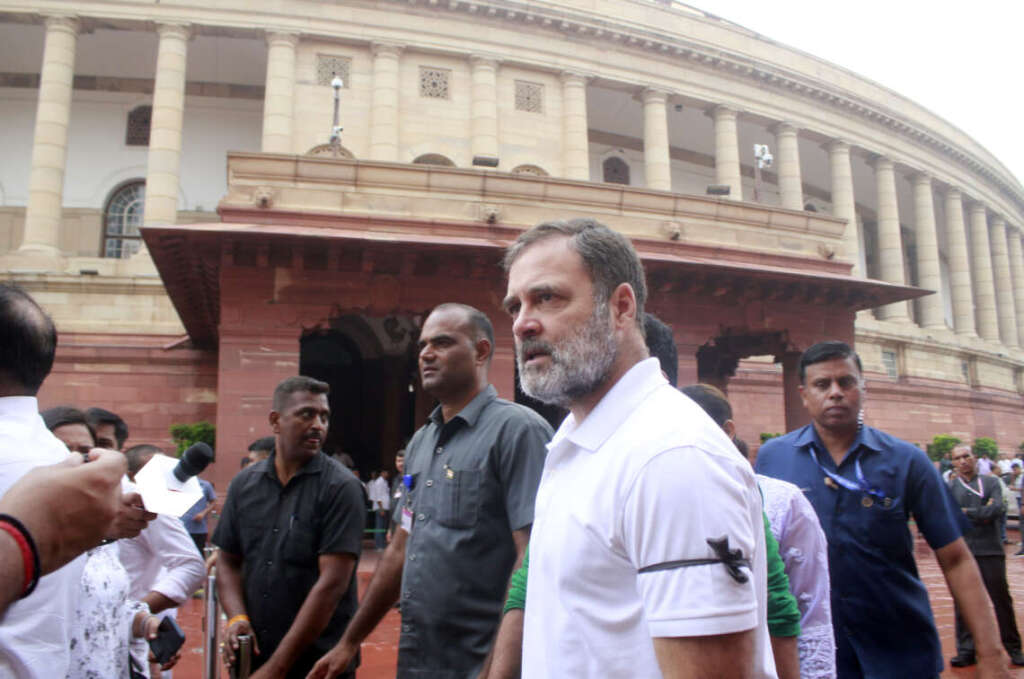Rahul, the courtroom, and the patriotism entice – India Every day Digital
When judges slip into ethical commentary, particularly on loyalty to the nation, they threat blurring the road between verdict and beliefs, writes Aravind Rajeev
A uncommon second of judicial overreach shook the political lately in India when the Supreme Courtroom took goal at Rahul Gandhi over a touch upon India’s 2022 border conflict with China.
Whereas granting him authorized reduction in a defamation case, the courtroom veered into uncomfortable territory by declaring that “a real Indian” wouldn’t make such statements.
That single phrase landed like a hammer. It was sufficient to ignite a political storm.
The Opposition INDIA bloc together with the Congress, TMC and CPM struck again with power, calling the comment pointless and politically loaded.
Priyanka Gandhi Vadra didn’t mince phrases both. She reminded the courtroom, and the nation, that Rahul had criticised the federal government — not the troopers — and that nobody has the suitable to outline who qualifies as a “true Indian.”
This isn’t about Rahul Gandhi alone. It’s concerning the troubling concept that courts can choose not simply legality, however patriotism.
The judiciary is considered one of India’s most trusted establishments, a guardian of the Structure and the final refuge for residents searching for justice.
However when judges slip into ethical commentary, particularly on loyalty to the nation, they threat blurring the road between verdict and beliefs.
It’s not the job of the courts to determine what a patriot seems or feels like. It’s their position to interpret the regulation, to not police sentiment.
That distinction issues particularly in a democracy constructed on pluralism, dissent and competing narratives.
This isn’t the primary time the judiciary has supplied sweeping observations from the bench. Generally, these remarks add ethical weight to urgent points.
However different occasions, like now, they stray too removed from the case and echo like private opinion dressed up in judicial authority.
On this occasion, even because the courtroom protected Rahul Gandhi from prosecution, it managed to border him, nonetheless subtly, as un-Indian.
That nuance will be weaponised. In actual fact, it already has been.

His critics leapt on the courtroom’s phrases as in the event that they had been gospel, including extra noise to an already hostile setting for dissent. And that’s the actual hazard.
The political local weather in India at this time is already thick with nervousness for Opposition voices. MPs are being suspended from Parliament for holding placards or elevating slogans. Tv panels and headlines usually distort their phrases or ignore them altogether.
Now, even the courts, meant to rise above politics, are making remarks that sound eerily like political endorsements.
When seen collectively, these occasions kind a sample. A sample the place disagreement with the federal government is now not simply disagreement – it’s handled as disloyalty.
The place criticism comes with the burden of proving love for the nation first.
That’s not democracy. That’s the politics of concern. We should pause and ask: do courts have to make such value-laden remarks whereas deciding circumstances? Ought to patriotism turn out to be a prerequisite for talking your thoughts?
And who, in a free republic, will get to determine what patriotism even is?
The irony is that the identical Supreme Courtroom has usually been a robust verify on extra. It struck down the electoral bonds scheme simply months in the past, calling it a hazard to political transparency.
It has defended particular person rights again and again. However the extra it steps into the ethical enviornment, the extra it dangers dropping its apolitical stance.
In a various, argumentative democracy like ours, disagreement isn’t just inevitable — it’s important. Some residents will cheer the federal government. Others will criticise it sharply, even angrily. That doesn’t make them much less Indian.
The position of the judiciary needs to be to guard their proper to talk, to not query their Indianness. Rahul Gandhi’s remark could have been politically dangerous. However the courtroom’s ethical verdict on his patriotism crossed a line.
As a result of as soon as judges start deciding who’s a “true Indian,” we open the door to a darker future. A future the place silence feels safer than reality. And in that silence, democracy begins to fade.
Source link
latest video
latest pick
news via inbox
Nulla turp dis cursus. Integer liberos euismod pretium faucibua

















